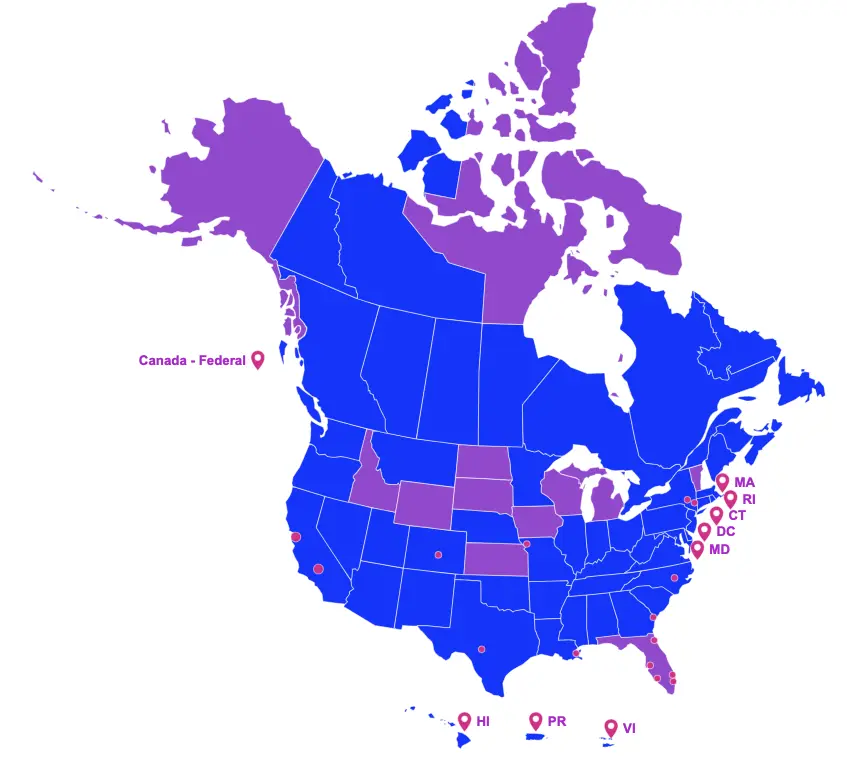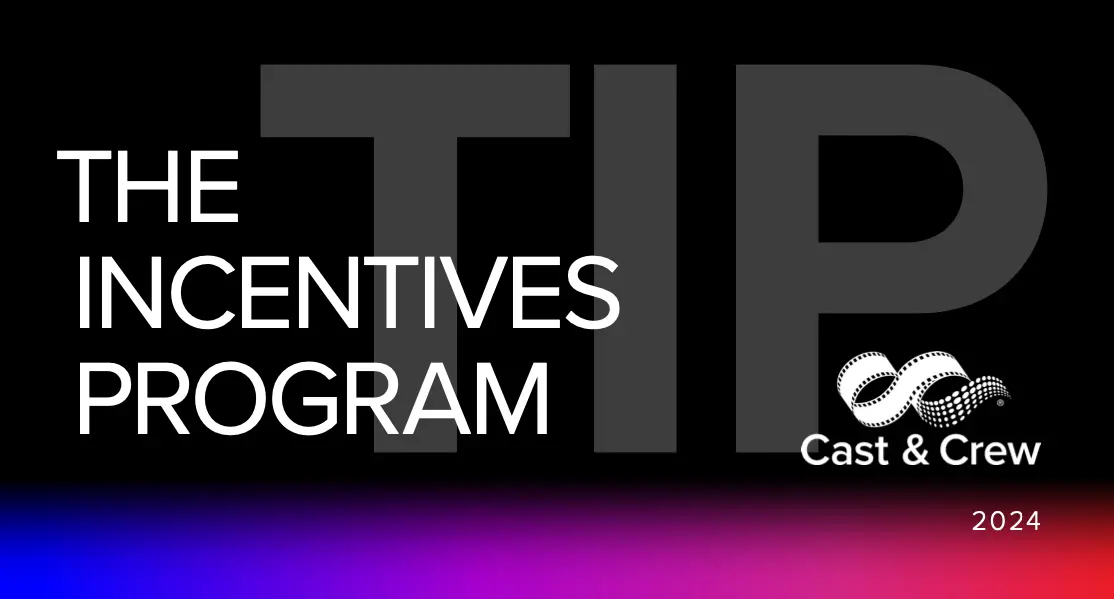THE INCENTIVES PROGRAM - TIP
A first look at our newsletter.
March 12, 2025
Cast & Crew Financial Services (CCFS) offers both U.S. and Canadian production incentive management services from setup to audit, as well as production incentive financing.
PROPOSED LEGISLATION
Still in the House or Senate
Alabama
House Bill 373 and Senate Bill 177 propose to amend the Entertainment Industry Incentive Act of 2009, as follows:
- Increases the amount of Alabama expenditures that may qualify for the incentive from $20 million to $25 million;
- Adds music albums to the definition of qualified productions with the following conditions:
- Requires a minimum spend of at least $30,000;
- Incentivizes the 1st $200,000 of expenditures in Alabama;
- Increases the annual funding cap per fiscal year (10/1 – 9/30) from $20 million to $30 million beginning October 1, 2025;
- Reserves $2 million of the fiscal year funding exclusively for music albums beginning October 1, 2025;
- If incentives are not allocated for music albums by July 1 of each year, the funds may be used for rebates to other qualified production companies;
- Allows for any unspent incentives in a fiscal year to be carried over to the following fiscal year, provided that the total amount carried over in any fiscal year does not exceed $3 million; and,
- Renames the Alabama Film Office to Alabama Entertainment Office.
If enacted, this act shall become effective on October 1, 2025.
California
Assembly Bill 1377 proposes to amend the California Motion Picture and Television Production Credit for taxable years beginning on or after January 1, 2025, by removing the good faith effort standard, and instead would allow the California Film Commission to increase a qualified motion picture applicant’s credit percentage by 4 percentage points if the applicant has met the diversity goals in its diversity workplan.
If enacted, this act takes effect immediately.
Hawaii
House Bill 882 proposes to amend the motion picture, digital media, and film production tax credit program, as follows:
- Establishes a 30% tax credit of the qualified production costs incurred by a qualified production in any county of the State, provided that:
- 25% of talent and crew paid for services performed relating to the qualified production are individuals residing in Hawaii;
- Increases the per project incentive cap from $17 million to $25 million;
- Increases the annual funding cap from $50 million to $100 million per calendar year; and,
- Allows for alternative marketing opportunities other than the shared-card, end-title screen credit.
If enacted, this act shall take effect upon its approval and apply to taxable years beginning after December 31, 2025.
Senate Bill 732 proposes to amend the motion picture, digital media, and film production tax credit program, as follows:
- Increases the annual funding cap to an unspecified amount;
- Qualifies broadcast and streaming platform productions;
- Requires projects that exceed $1 million of production costs in a calendar year to be certified by an independent third-party certified public accountant to qualify for the tax credit; and,
- Requires each county to waive applicable permitting fees for film activity conducted on county lands by a qualified production that qualifies for the film production tax credit.
Illinois
House Bill 2469 proposes to amend the Film Production Services Tax Credit Act by requiring an accredited production receiving credits under this Act on or after the effective date of this amendatory Act, to include the official logo of the Illinois Film Office in the end credits and a link to the website of the Illinois Film Office on any promotional website.
New Hampshire
Senate Bill 286 proposes to establish the Film and Motion Picture Tax Credits program, details are as follows:
- Establishes a 25% payroll tax credit of total qualifying payments made to employees within the state;
- Establishes a 25% nonpayroll spend tax credit of production expenditures within the state, provided that:
- At least 50% of principal photography occurs within the state; and,
- That the New Hampshire production expenses exceed 50% of the total production related expenditures;
- Qualifies up to $250,000 of payments made to any single employee;
- Requires a minimum spend of at least $50,000 in a fiscal year (7/1 – 6/30); and,
- Appropriates $500,000 of funding for the fiscal years ending June 30, 2026 and June 30, 2027.
If enacted, this act shall take 60 days after its passage.
Texas
House Bill 3543 proposes to amend the moving image industry incentive program by removing the current 55% Texas resident requirement.
If enacted, this act takes effect September 1, 2025.


